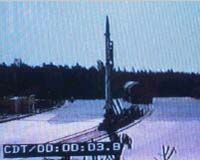 Farmers are having a hard time finding ground water to grow their crops.
Farmers are having a hard time finding ground water to grow their crops.(Fortune) -- Just before dusk, on the plains of India's northern Punjab region, 22-year-old Naresh Kumar sprinkles mustard oil, turmeric, and raw sugar inside a ten-inch circle traced in the rich soil. Hands clasped, head bowed, he prays for a bountiful supply of ground water. Then he cranks a wheezing diesel engine, lines up a drill over the offerings, and releases a lever that brings an iron cylinder crashing into the earth. "Business is growing," says Kumar. "But we've placed about as many tube wells as we can in this area."
Indeed, the ground here in India's fertile breadbasket is beginning to look like Swiss cheese. On either side of Kumar's drill the calm beauty of emerald rice paddies belies a catastrophe brewing hundreds of feet beneath the surface. As the water table drops dangerously low, farmers are investing heavily - and often going into debt - to bore deeper wells and install more powerful pumps. A prayer might just be the best chance for survival.
Punjab has only 1.5 percent of India's land, but its output of rice and wheat accounts for 50 percent of the grain the government purchases to feed more than 400 million poor Indians. Experts say the 375-foot-deep tube well and 7.5-horsepower pump Kumar is installing for a farmer are at the eye of a storm that threatens India's food security, environmental health, and economic progress. "We have depleted the ground water to such an extent that it is devastating the country," says Gurdev Hira, an expert on soil and water at Punjab Agriculture University in Ludhiana. Hira estimates that the energy used to subsidize rice production in the region costs $381 million a year. He and other experts warn that, if left unchecked, future drilling will bleed state budgets, parch aquifers, and run farmers out of business. More >>>













